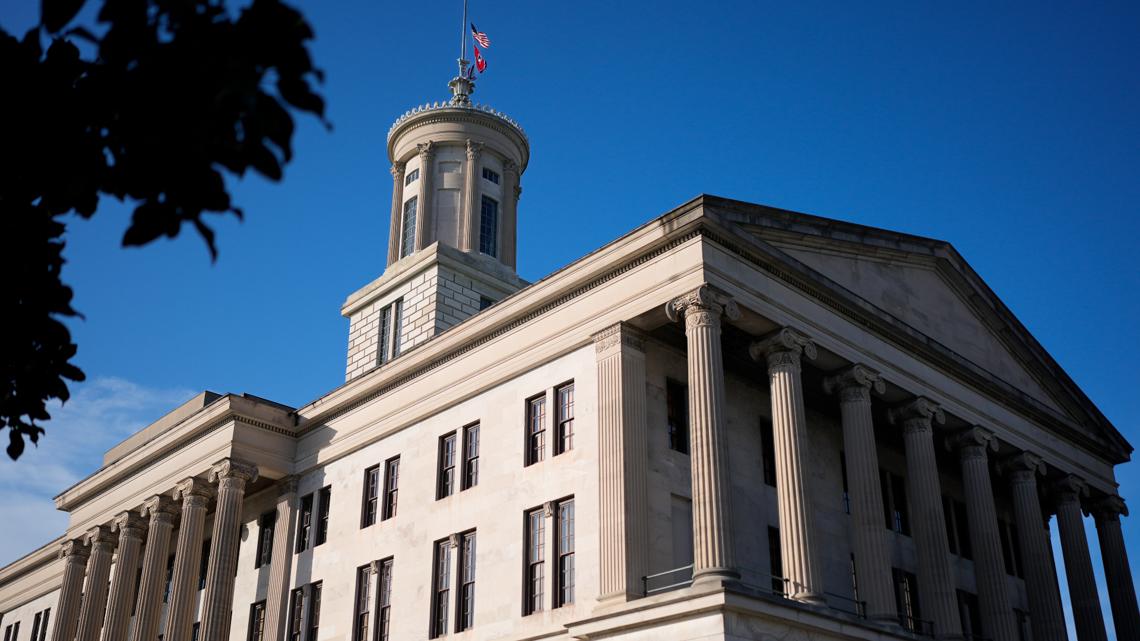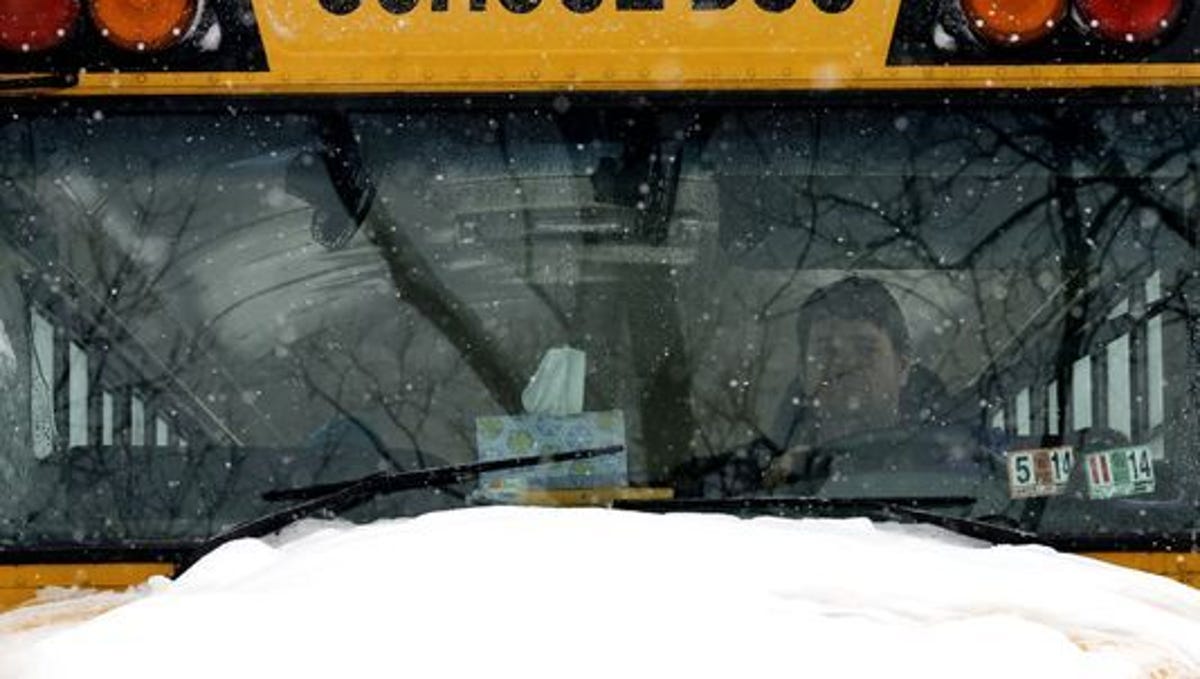Tennessee
Senate budget chair warns that federal education dollars would go to other states – Tennessee Lookout

The chairman of Tennessee’s Senate Finance, Ways and Means Committee is issuing a warning that rejection of federal K-12 education funds would send Tennessee taxpayer money across the country.
Sen. Bo Watson, a Hixson Republican, tells the Tennessee Lookout he is comfortable with making a thorough review of federal requirements attached to education funds, nearly $1.9 billion in this year’s budget, yet he has a word of caution as well.
Watson told a Hamilton County group over the weekend he sees “no harm in evaluating” the use of federal dollars.
“But what everyone needs to understand is that federal tax dollars that come back to Tennessee are Tennessee taxpayer dollars, and so if you elect not to take those dollars, which we could do, you have to realize you’re sending that money somewhere else, and that’s Tennesseans’ tax dollars,” Watson said Tuesday.
The Legislature and Gov. Bill Lee are turning down more than $1 billion a year already by refusing to expand Medicaid to serve more than 300,000 uninsured and underinsured people across the state. Lawmakers killed a proposal by former Gov. Bill Haslam called Insure Tennessee to expand Medicaid, and Lee has declined to renew the idea despite Democrats’ pleas.
Watson’s comments come as a group of House and Senate members is set to study federal education funding, the mandates placed on the state to receive the money and potentially a recommendation to reject it.
But what everyone needs to understand is that federal tax dollars that come back to Tennessee are Tennessee taxpayer dollars, and so if you elect not to take those dollars, which we could do, you have to realize you’re sending that money somewhere else, and that’s Tennesseans’ tax dollars.
– Sen. Bo Watson, chair, Senate Finance, Ways and Means Committee
House Speaker Cameron Sexton broached the idea early this year, before he and Lt. Gov. Randy McNally opted to form the panel for a review this fall.
The state received nearly $2.5 billion from the federal government in fiscal 2021-22 when the nation was at the height of the COVID-19 pandemic and more than $1.9 billion last fiscal year. The fiscal 2023-24 budget contains $1.89 billion from the feds, most of which goes toward nutrition, Title I programs for low-income children and special needs students as part of the Individuals with Disabilities Education Act.
More than a third of Tennessee’s $56.2 billion budget comes from the federal government.
Sexton said recently the state has to spend money in order to make sure it is handling the federal dollars properly, raising questions about whether the state can operate more efficiently.
Watson pointed out concerns about federal education funds and the regulations attached to them are longstanding. Conservatives have been trying for decades to eliminate the U.S. Department of Education.
During the August special session on public safety, Watson raised concerns about a “hole in the budget” when lawmakers spent about $110 million on a variety of programs.
Tennessee’s revenue report for the first two months of fiscal 2023-24 showed the state came up short of projections, more than $7 million in September, mainly because business tax collections were weaker than expected, not because of a shortfall in sales tax collections.
Despite the weak revenue report, he declined to express those same reservations about rejecting federal education funds, saying it’s important to make the study first.
“My interest in this deep dive is more about … what are the requirements attached to those dollars, and then the discussion is do we want to accept or reject those requirements, which then leads to the discussion of, well, can we afford to reject those requirements or can we reject some of the requirements and some of the money but keep others,” Watson said.
The group is set to hold a handful of meetings the first two weeks of November before it makes a recommendation. Watson predicted the governor’s budget plan for fiscal 2024-25 will contain the federal K-12 funds and any other federal dollars the state typically receives.
Lawmakers say stopping federal education funds favors private and charter schools over public
But if lawmakers decide to forgo the funds, it would be up to him and House Finance Chairlady Patsy Hazlewood, R-Signal Mountain, to direct the Legislature in finding a way to offset the loss of that money. Watson said it’s too early to say where money could be shifted to replace federal funds.
Hazlewood said Tuesday the panel should be able to find out how much of the federal money makes it to the classroom.
“That would determine the additional cost for the state to take on this role,” she said in a text statement. Then, the Legislature would be able to decide what action to take.
The state accepted billions in federal funding during the COVID-19 pandemic, including $4.2 billion for K-12 education through three congressional acts, one approved under President Joe Biden and two under former President Donald Trump. The money went to efforts to improve literacy and help students rebound from time out of the classroom, as well as a math textbook adoption and online learning resources, innovative high schools, mental health support, professional development and improving the state’s teacher pipeline.
Senate Minority Leader Raumesh Akbari, who is slated to serve on the study group, has criticized the proposal from the outset.
Akbari, D-Memphis, pointed out the state spent billions in federal funds on roads and bridges, broadband and water infrastructure.
“No one quibbles about whether these investments improve our quality of life and boost our economy,” she said. “Student funding from the federal government is no different. It’s an investment in our families and a 21st century workforce.”
Akbari further contends rejecting the money would “sabotage” students and Tennessee’s economy.

Tennessee
Tennessee General Assembly convenes for session expected to focus on voucher issue

Tennessee legislature: 3 key issues to watch
The 114th Tennessee General Assembly convenes on Jan. 14 for a new two-year term.
The 114th General Assembly gaveled in at the Tennessee state Capitol Tuesday for a legislative session expected to largely focus on education issues as Gov. Bill Lee seeks to push through a private school voucher proposal.
With few election shake-ups last fall, lawmakers returned to a legislature with little change in the status quo. Republicans still hold a strong supermajority, and prexisting leadership will preside over both chambers.
Senate Republicans on Tuesday reelected Lt. Gov. Randy McNally, R-Oak Ridge, as Speaker of the Senate. Senate Democrats all abstained from the vote.
“Each General Assembly I’ve gaveled in seems to be better than the last,” McNally said.
In the House, Speaker Cameron Sexton, R-Crossville, also easily won reelection to lead the chamber. Democrats nominated House Minority Leader Karen Camper, D-Memphis, and unanimously voted for her.
“The people of District 52 will not vote for an authoritarian!” Rep. Justin Jones, D-Nashville, yelled from his seat before casting his vote for Camper.
As Republican members called their votes for Sexton, a spectator yelled out “boo!” and “gross!” from the west gallery – prompting a chuckle from the sitting speaker, who stood to one side as the election was held.
“I greatly appreciate all that voted for me today, and for those of you who didn’t, I do know some of you wanted to, and I understand that,” Sexton said. “Over the last five years, we’ve all learned a lot. My goal is to be more efficient, empower Tennesseans over the government and uphold our constitutional duty of public oversight.”
Notably, some desks were rearranged on the House floor since last year. Jones and Rep. Justin Pearson, D-Memphis, who had previously been seated near each other and have frequently clashed with their Republican colleagues, were both moved. Pearson is now seated next to Rep. Vincent Dixie, D-Nashville, in a sea of Republican desks across the chamber from the Democratic caucus. Jones has been moved to the front, near the speaker’s dais.
The House Select Committee on Rules convened later Tuesday afternoon to discuss proposed changes to the rules. Ahead of the meeting, proposed rules changes included a limit on the number of bills each member can propose, and a “three-strikes” rule proposing to permanently ban members of the public found to be disruptive from the gallery.
The initial weeks of a legislative session are often slow-moving as committees get settled and bills began to make their way through the legislative process. The Senate is expected to name committee assignments on Thursday. Many eyes will be on the appointment of the Senate Education Committee chair after former Sen. Jon Lundberg’s ouster last year in the GOP primary. The committee will prove pivotal in the voucher issue.
Advocates on both side of the issue mingled in the Capitol halls on Tuesday.
There are rumblings that Lee intends to call a special session in late January on his voucher bill.
The effort failed last year amid legislative gridlock. A special session call would allow lawmakers to narrow their focus on the issue, which could be tied to disaster relief funding for areas of East Tennessee.
Tennessee
Archibald: Let’s rename the world, but start with Tennessee

This is an opinion column.
Who knew it was an option to simply change the names of things that don’t belong to us?
The possibilities are endless. You don’t have to actually change anything. You just have to call it something else.
For personal reasons, I’d like to rename Tennessee “Dorkland.” No offense to actual dorks. For personal reasons, Tennesseans have called me worse.
I’ve never understood why Alabama, which presumably dares defend its rights of way, allows the Dorkland River to flow freely in and out of its borders. Maybe we should just call it the River Sticks. Because you cross it to get to hillbilly hell.
It’s freeing to rename things that annoy you. There’s a president, I mean precedent, for it. And bodies of water are a good start.
Lake Superior is in the state of Canada, for Pete’s sake. It should rightly be called Lake Inferior. And the Pacific Ocean sounds like some hippy dippy draft dodger with “bad feet.” Let’s call it the Ocean of American Might. That’ll make waves.
Most rivers in Alabama are named for Native American culture, and I like that, except in the case of the one mentioned above. Lakes, on the other hand, are generally named for Alabama Power execs or their mothers, lawyers, engineers or friends. I’d change them in a Reddy Kilowatt, to Atlantic, Ventnor and Marvin Gardens. Park Place and Boardwalk. You know. Monopoly properties.
I guess New Mexico has to change. But I’m sure smart people are already thinking that.
I’m curious, too, why we never bothered to name the moon. It’s there every night and it’s just … moon. It’s like calling your dog “Dog” or your kid “Kid.” We planted a flag in that thing, so give it a fitting name: Yankee Doodle Flashlight. Or is it a gaslight?
But before you can change the heavens you have to change the wrongs closer to home.
There’s an Alabama town called Cuba 11 miles west of Intercourse. Of course we can’t have that. Cuba, I mean. We’ll call it Foreplay instead.
An hour northeast of Needmore, a little less than an hour northwest of Smuteye, is the community of Little Texas. There are only about 1,200 people there, but they need to own it. Forget the Little, and just call them Texas. The state of Texas? We’ll call it West Smuteye.
Marshall County has an Egypt and an Arab (rhymes with Ahab). It’s probably why the county has the third-highest immigrant population rate in the state. Alabama has a Berlin, a Havana and a Rome — where all roads do not lead.
There’s the Abel community in Cleburne County, just across the Talladega National Forest from Waldo, if you know where to find Waldo. As the Bible tells us Abel was a loser, so that has to change. Just call it Cain.
For that matter, why don’t we change the names of names.
Alabama offensive coordinator Nick Sheridan has not earned the right to be Tuscaloosa’s Nick S. (or a paycheck 22 times the median household income in the state, but that’s another story). Let’s just call him Temp.
That singer from Alabama, India Ramey, is tearing up Nashville these days. She’s great. But I’m afraid we’re going to have to call her Indiana. For America’s sake.
Cuba Gooding Jr. must be Cuba Not-so-Gooding. And while I hate it for Tennessee Williams, he will now have to be Dorkland Williams. It’s not even fair.
But hey, I’m just calling ‘em what I see ‘em.
In a world where greed is godly, thought control is liberty and theocracy is religious freedom, a rose is whatever you want to call it.
John Archibald is a two-time Pulitzer winner who, in actuality, has nothing at all against the great state of Tennessee. Or Dorkland.
Tennessee
The 2025 Tennessee legislative session begins on Tuesday. Here's what to know

The first bill filed ahead of the start of the Tennessee legislative session reintroduces universal school vouchers, a topic that failed to find support last year.
NASHVILLE, Tenn. — Tuesday marks the start of the 2025 Tennessee legislative session — an annual process that brings state lawmakers to Nashville to discuss and decide on proposals that can impact all of the state’s 7.2 million residents.
This will be the 114th General Assembly, meaning it will be the 114th group of lawmakers to gather in the capital — whether it be located in Nashville, Knoxville, Kingston or Murfreesboro — to pass laws. The first General Assembly was on March 28, 1796.
There is a Republican supermajority this legislative session, as there has been in the previous years. This means that Democratic lawmakers could effectively not show up and there would still be enough lawmakers to pass laws. There will be 27 Republicans in the Senate with six Democratic members. The House of Representatives has 75 Republicans and 24 Democratic members.
Effectively, nothing changed in the makeup of this session compared to the previous one. However, some previous Republican lawmakers had their seats taken by new Republican members. Some of those members, such as Republican Representative Rick Scarbrough, were voted into their seats after collecting donations from a PAC that supports universal school voucher proposals.
The first bill filed of this session reintroduces the program, which drew the ire of educators and community members across East Tennessee. Its mostly Republican supporters argue that the proposal increases school choice for Tennessee families. However, educators and advocates condemned it for using public money to fund private school expenses.
Last year, the proposal failed after three competing bills were introduced, each with different rules for the program. This year, there is a single bill to start the program. It includes a $2,000 bonus for teachers and requirements for private schools to be accredited. It also bases scholarships for families on the amount of money students generate for schools, according to the state’s TISA formula.
Democratic lawmakers and advocates contend that despite the changes, the core of the proposal remains the same — using public money to pay for private school expenses. They say that it effectively removes funding for public schools, which already face tight budgets. They also argue that the proposal leaves out rural families who may not have private school options, and said the funding will only subsidize private education costs instead of outright paying for them.
Abortion also promises to be a contentious topic, as it has been for several years. This year, Republican lawmakers proposed banning abortion care medication from being sent in the state’s mail system, further restricting abortion care access in a state already known for having one of the country’s most restrictive abortion care bans.
Democratic lawmakers proposed abolishing the state’s grocery tax as a way to help families save money while prices continue to rise nationally for most goods. Republican leaders said they hope to refine the proposal to keep the tax in place, in some form.
Proposals that expand police powers to detain undocumented immigrants and require different IDs to be given to immigrants have also been introduced, along with a proposal that could effectively expand the state’s anti-transgender bathroom rules.
This legislative session will also be held during the first term of President-elect Donald Trump, who many state lawmakers and leaders including Governor Bill Lee have met and expressed support for in the past. Lee signed onto a pledge with 25 other Republican governors in December to support Trump’s immigration policies, which he said include plans for mass deportations.
The legislative session will also begin with a lawsuit continuing to go through the courts that Representative Justin Jones (D-Nashville) filed against Lee. In it, he said his constitutional rights were violated when leaders tried to stop his dissent on issues like gun restrictions by expelling and silencing him.
Usually, legislative sessions last until late April or May of each year.
-

 Health1 week ago
Health1 week agoOzempic ‘microdosing’ is the new weight-loss trend: Should you try it?
-
/cdn.vox-cdn.com/uploads/chorus_asset/file/25822586/STK169_ZUCKERBERG_MAGA_STKS491_CVIRGINIA_A.jpg)
/cdn.vox-cdn.com/uploads/chorus_asset/file/25822586/STK169_ZUCKERBERG_MAGA_STKS491_CVIRGINIA_A.jpg) Technology5 days ago
Technology5 days agoMeta is highlighting a splintering global approach to online speech
-

 Science3 days ago
Science3 days agoMetro will offer free rides in L.A. through Sunday due to fires
-
/cdn.vox-cdn.com/uploads/chorus_asset/file/25821992/videoframe_720397.png)
/cdn.vox-cdn.com/uploads/chorus_asset/file/25821992/videoframe_720397.png) Technology7 days ago
Technology7 days agoLas Vegas police release ChatGPT logs from the suspect in the Cybertruck explosion
-

 Movie Reviews1 week ago
Movie Reviews1 week ago‘How to Make Millions Before Grandma Dies’ Review: Thai Oscar Entry Is a Disarmingly Sentimental Tear-Jerker
-

 Health1 week ago
Health1 week agoMichael J. Fox honored with Presidential Medal of Freedom for Parkinson’s research efforts
-

 Movie Reviews1 week ago
Movie Reviews1 week agoMovie Review: Millennials try to buy-in or opt-out of the “American Meltdown”
-

 News7 days ago
News7 days agoPhotos: Pacific Palisades Wildfire Engulfs Homes in an L.A. Neighborhood













